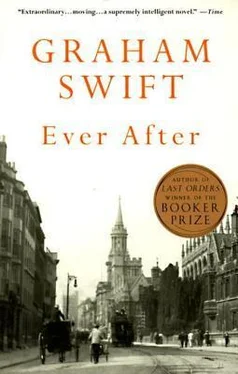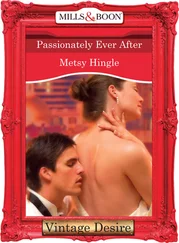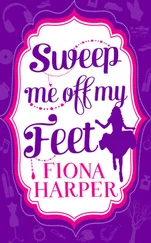“I know. Get in,” he said, in the peremptory tone that gangsters in films use, often reinforcing their words with a gun. Come to think of it, with his eyes hidden by a pair of thick-framed dark glasses, Potter looked, intentionally or otherwise, not a little like a gangster. I had the feeling of having happened on him at his most absurd and desperate — caught in some outlandish charade. Perhaps he realised this. I was glad his eyes were hidden. Perhaps he merely wanted to prevent me from joining Gabriella on the walk to the Library. Perhaps he was trying to save the situation by an apparent seizing of the initiative.
Like a fool, I got in.
Gabriella had crossed the road and was about to disappear from view. The black sweater almost eclipsed the black skirt. He stuck his head out of the driver’s window and shouted “Ciao bella!” in her direction. She didn’t turn. Perhaps she didn’t hear. As we drove off, he said, “I think you’ve met Gabriella. Research student. From Verona. Sweet kid. Sweet kid.”
He looked at the briefcase lying on my knees.
“Where are we going?” I asked meekly.
“Oh — just for a ride. A ride, a spin, a chat. Lovely morning like this. Don’t worry, the Library won’t go away. You’re working on the Pearce manuscripts?”
“Yes, as it happens—”
“And how’s it coming along?”
I shrugged.
“You can’t do it, Bill. You can’t fucking do it!”
“I can’t?”
“You don’t have the background.”
“I’ll find out. That’s why I was—”
“Why should you spend a year researching what I could tell you right now?”
There was an answer to this, not an easy or a scholarly answer. But this was no time to give it.
“They’re my notebooks,” I said.
“It’s my field.”
“It’s my business.”
We stopped at traffic lights. He groped for a cigarette and roughly offered me one. Inside the car there was still a faint trace of scent. The seat was warm. How casually we human beings exchange places. Then I noticed on the shelf in front of me, beneath the dashboard, hidden from Potter by assorted clutter, a small, cylindrical bottle of perfume. So (the evidence of a hasty exit): while they had “had words,” she had coolly taken out her perfume and dabbed herself, perhaps serenely eyed her compact mirror as well. Then, the words getting more heated, she had got out and slammed the door, having absent-mindedly flung the perfume bottle beneath the dashboard. Then she had remembered and reached in through the window—“My perfume”—and he had grabbed her wrist.
These little scenes …
He turned to light my cigarette. The glare of the sun, as it had set off Gabriella’s limpid complexion, showed up his tired features. Minor celebrity-dom has not become Potter. As his TV face has acquired definition, so his private face has become blurred. Perhaps it is exposure to the studio cameras which has given him, in the light of day, the worn-but-defiant looks of a faded matinée idol. The hair, which affects a tousled nonchalance, is betrayed by the crinkled brow. The eyes, when not masked by the raffish sun-glasses, have their own shadowy nimbus. Every so often they have this vexed expression, as if a serious man were trying to get out from the guise of a clown.
“What were you going to look up?”
“Lyell.”
“The Principles ?”
“Yes.”
“Which edition?”
“What do you mean, which edition?” I said ingenuously. I knew perfectly well that Lyell published more than ten editions of the Principles of Geology , three with significant revisions, and that the edition I should use — the edition which Matthew would have lent to Rector Hunt and which the Rector failed to finish — was the 1853 (revised) edition.
“You see, this is just the sort of thing I mean. Lyell published a dozen editions. He revised the thing several times. His thinking changed. Are we talking about the 1850, the 1853 …?”
“Oh — I see. I think the 1850.”
“And are we talking about the Principles or the Elements ? You know the difference?”
(Matthew had both. Companion volumes. He lent the Rector both. Over a thousand pages.)
“Ah—”
The lights changed. We drove off.
“It’s my subject, Bill.” The voice took on a more frenzied note. “The spiritual crisis of the mid-nineteenth century is my subject !”
Uttered in the late twentieth century and emanating from that dark-vizored, cigarette-clenching face, these words, if they had not carried such urgency, would have had a comic splendour. Perhaps he realised their preposterousness. We careered round a roundabout. Why should a man whose principal interests seemed to be a dubious bid to become a TV personality, and the exploration of ever-varying female flesh, care at all about scholarship, let alone the spiritual crisis of the mid-nineteenth century? But then why should I—?
“You have a monopoly?”
“You have credentials?!”
If he hadn’t suddenly started to drive like a madman, I might even have begun to feel sorry for him. I had encountered him at a bad moment. He had had a lovers’ tiff, poor man, and been witnessed in the process. Now, with me as a hostage to his spleen, out was coming all his deeper discontent.
And why was I so immovable? If I owned the Notebooks, did I own Matthew? I might have said, “All right, stop the car,” and handed over the briefcase. I admit that on this bright morning, three days after my interview with Sam, I came close to doing just that. “Here you are”—with a sweet and compassionate smile—“What does it matter? If it means so much to you.”
And how does anyone find “their subject”?
We had driven out of town and turned on to a minor road that led across flat, glistening farmland, threaded by willow-fringed ditches. It was then that he began to behave like a frustrated rally-driver. Admittedly, there was a virtual absence of traffic, and visibility was perfect, but there was the problem of the sharp bends the road took, after long straights, round the corners of ancient, inviolable fields. Also the problem, on occasion, of an oncoming car. I clung, reflexively, to my briefcase. I thought: he means to scare me into surrender. I fleetingly but seriously indulged the fantasy that all this was a deliberate exercise: Plan B, or Abduction. I was being whisked away to some secret hide-out, where the price of my release would be the contents of my briefcase. I would be found, a day or so hence, wandering dazed and dishevelled by the roadside.
But there was a moment — I swear it — when all speculation seemed beside the point. As we headed towards a right-hand bend which the expression on Potter’s face seemed grimly to disregard, I thought: he means to kill us both, him and me, on this spring morning. He could really do it. And as we hurtled towards this possible outcome, I was conscious of the vibrant green of the fields, of little, individual larks trilling somewhere, unseen, above us, and I had a distinct vision of the ghost of Matthew Pearce (he wore a black frock-coat and was wondering just what it was he had started) coming to visit the scene of the crash, coming to ponder these two dead men who had died locked in mortal argument over his own lifeless remains.
“Why don’t you stick to poetry, Bill?”
“The terms of the Ellison Fellowship,” I jabbered, “clearly allow me—”
“Fuck the Ellison Fellowship. The Ellison Fellowship’s a fucking joke. You know that.”
“Michael, I think you should slow down.”
“What do you want , money or something?”
“I think you should slow down .”
“You want to sell the Notebooks, is that it?”
Читать дальше












